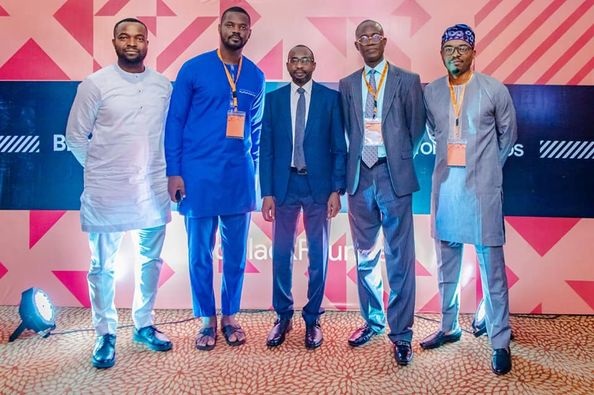
The director-general, National Information Technology Development Agency (NITDA), Mallam Kashifu Abdullahi has said the recently passed Nigeria Startup Bill by the National Assembly will help institutionalise legal frameworks that will enhance the growth of startups easily, quickly and conveniently in the country.
He made this assertion while delivering a keynote address at the launch of the Google Black Founders Fund in Africa 2022, in Abuja.
Abdullahi noted that part of the challenges faced by startups, especially in Africa, is legal backing. According to him, starting and growing businesses in Africa used to be a big challenge, but with such bills in place, it will be easier to start a business.
Speaking on the importance of the event, Abdullahi said the gathering was an opportunity for startups to get funding and start businesses. Also, he said it was of uttermost importance, seeing as it came with incentives like the training Google offers which can be accessed via their cloud.
While affirming the government’s commitment to the growth of the digital economy in Nigeria, he said: “We believe our responsibility is to come up with policies that can enable a level playing field, and the government has been doing a lot in this area, starting with expanding the mandate of our ministry to cover digital economy and the ongoing implementation of National Digital Economy Policy and Strategy for a digital Nigeria, which outlined strategic pillars that are key to the ecosystem.”
“We are currently working on a project called ‘Talent Gap Assessment’ because we believe talent is the people side of technology. In Africa, we cannot compete with the rest of the world in terms of hardware and any technology infrastructure, but when it comes to talent we have a competitive edge over the rest of the world,” he said.
Advising the startups to have in mind that technology is making things easier, Abdullahi noted that customers’ demands are changing rapidly, so they should envisage how human lives will be tomorrow and come up with innovative products that will be sellable in the future market.
“Don’t waste your time on what is happening today. The problem of today may be irrelevant tomorrow. Focus on emerging technologies and change the way we do things in this world. What helps you to succeed today may not help you succeed tomorrow.”
“Try and turn your products into services because the world is moving to service platform markets. You will make more money in service than in products. It is easier to provide a service in Africa because of our challenging infrastructure. Let us explore that. That will help us excel,” he added.
Abdullahi assured that the government is ready to partner with people or organisations like Google and the ecosystem generally, especially with five key critical stakeholders needed on board to build a strong ecosystem: entrepreneurs, higher institutions, corporate organisations, multi-nationals and the government.
“Entrepreneurs bring ideas, higher institutions provide human capital development, corporate organisations absorb products and the government’s role is basically in the policy-making and intervening in situations where there is a shortage in unserved and underserved areas. This is why the government came up [with] the start-up bill which is also going to come up with a seed funding that can help with early-stage funding as well,” he noted.
Abdullahi thanked Google for the opportunity provided to African startups and also encouraged other multinationals to look at how they can help the African startup ecosystem with funding. He added that it would be a win-win situation, as the more startups [increase] in Africa, the more digital offerings [there will be] and the more market they will create for multinationals.
On his part, government affairs and policy manager, Google Nigeria, Mr. Adewolu Adene applauded the Nigerian government for the support it provides on ease of systems and contributing to data in terms of physical incentives and the registration process of the Corporate Affairs Commission (CAC).
“We are grateful for the support that we have been getting from policy-makers and all the forces behind us. We have done a lot to get to this point and we hope that we can continue to do even more to take us further such that we can deliver on the respective mandate,” he added.


